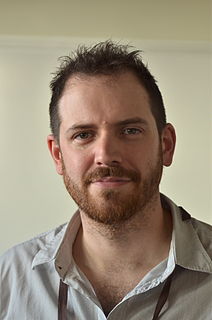A Quote by Richard Whately
The word of knowledge, strictly employed, implies three things: truth, proof, and conviction.
Related Quotes
No word in our language - not even "Socialism" - has been employed more loosely than "Mysticism." The history of the word begins in close connexion with the Greek mysteries. A mystic is one who has been, or is being, initiated into some esoteric knowledge of Divine things, about which he must keep his mouth shut.
The Greek word for philosopher (philosophos) connotes a distinction from sophos. It signifies the lover of wisdom (knowledge) as distinguished from him who considers himself wise in the possession of knowledge. This meaning of the word still endures: the essence of philosophy is not the possession of the truth but the search for truth. ... Philosophy means to be on the way. Its questions are more essential than its answers, and every answer becomes a new question.
The important word there is inspire. The key difference between managers and leaders is that managers tell people what to do, while leaders inspire them to do it. Inspiration comes from three things: clarity of one's vision, courage of their conviction and the ability to effectively communicate both of those things.
All those formal systems, in mathematics and physics and the philosophy of science, which claim to give foundations for certain truth are surely mistaken. I am tempted to say that we do not look for truth, but for knowledge. But I dislike this form of words, for two reasons. First of all, we do look for truth, however we define it, it is what we find that is knowledge. And second, what we fail to find is not truth, but certainty; the nature of truth is exactly the knowledge that we do find.
Capitalism drives the employers to do their worst to the employed, and the employed to do the least for them. And it boasts all the time of the incentive it provides to both to do their best! . . . The reason the Capitalist system has worked so far without jamming for more than a few months at a time, and then only in places, is that it has not yet succeeded in making a conquest of human nature so complete that everybody acts on strictly business principles.





































